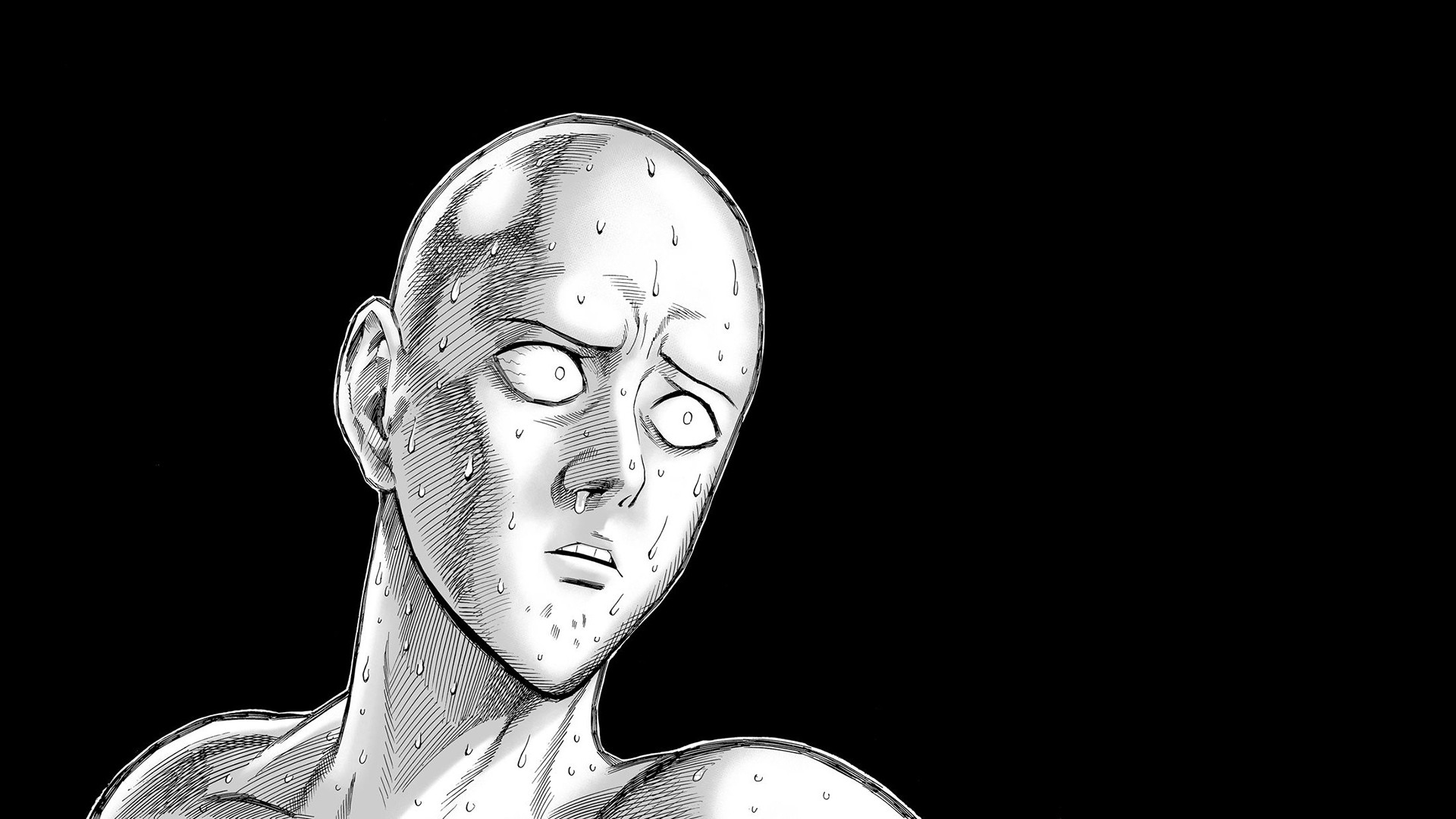There are just two things we can do with reality – decomplexify it (which takes positive action on our part) or not decomplexify it (which takes no doing at all). That’s the sum of all the possibilities in life right there! Out of these two things, not decomplexifying the world is the only interesting one, and that happens to be the thing we never do! Decomplexifying the world means that we only ever see what we expect to see and there is of course sense of security in this; there is a sense of security in this but it’s not a sense of security that is based on anything real. Seeing what we expect to see, more or less, feels good in one way therefore, but it’s also true that ‘seeing what we expect to see’ – if we get too much of it – becomes a very unpleasant experience indeed. It turns into a hell realm of hell state. Too much of this particular sense of security and it is rather as if I am being mocked wherever I go – I am the butt of some joke but I cannot see what the joke is. What’s happening here is that my environment has stopped merely ‘agreeing with me’ – which feels good – and now it is humouring me, which as we all know doesn’t feel good at all. It’s echoing me back at myself. Agreeing and humouring might sound pretty similar but when the one shades into the other ‘pleasant’ (all of a sudden) turns into ‘unpleasant’. What we took to be a good thing reveals itself to be not so good at all. What we are so hungry for turns out to be our nemesis.
When we talk about this thing called ontological security what we are really talking about is the confirmation of our assumptions about reality. That’s the only ‘security’ we’re ever going to get, after all – it’s not as if ‘security’ is an actual real thing or anything like that. We have certain ideas about reality and then when these ideas (or proto-ideas) get validated (or seem to have been validated) then this feels good because it now seems to us that we have some solid ground under our feet. This solid ground, as Chogyam Trungpa says, is what we always looking for, it is what we always try to maximise. We are always looking for territory because without territory it’s as if we don’t exist. This is why we are always going around in believing in things – it is by believing in things that we get to have territory! If someone disrespects our territory, or actually attacks it, then it’s as if they’re disrespecting or attacking us. It should come as no surprise that people can cut up so rough when their beliefs are being challenged therefore – when you attack my beliefs it immediately becomes personal. When there is a big belief, a collective belief, and someone doesn’t respect it (or at least pay lip-service to it) as they should, then that person becomes the enemy of everyone. They immediately become universally unpopular and we all understand that they have done a very bad thing, even though we don’t really see to the roots of exactly why that is. Our main activity in life therefore is obtaining confirmation for our ideas or for our assumptions about the world and this is something that we are very good at. ‘What the thinker thinks the prover proves,’ says Robert Anton Wilson and this trick – on the whole – seems to be working very well for us. It’s actually the only trick that we’ve got, so if it stopped working then we’d be in serious trouble!
What we are essentially engaged in is creating ‘confirming environments’ for ourselves – we are busy creating and maintaining confirmation worlds, worlds that echo our ideas. We are just like religious zealots in this regard – we want the whole world to believe what we believe in, we don’t want anyone – on pain of death – to start questioning it. We have (or at least pretty much all of us have) embarked wholeheartedly on this project of ‘creating a positive world’ or ‘creating a world of confirmation’ and this of course indicates that we see (implicitly, at least) what we’re doing as being a thoroughly good thing, an exercise with no downside. There is a downside however, as we have just noted. The downside is that confirmation is a double-edged sword – it has a ‘two-sided’ nature to it whereby what seems to be good and honest and wholesome in the first instance subsequently reveals itself to be none of these things. Confirmation subsequently reveals itself to be corrupt, untrustworthy, deceptive and absolutely unwholesome. In a twinkling of an eye, says Johann Fabricius, the object of the alchemist’s fervent devotion is transformed from ‘the holy of holys’ to a thing of utter absolute horror….
To have our underlying assumptions about the world being confirmed might feel very pleasant in the first half of the process but it surely doesn’t feel very pleasant later on. The creation of a positive world feels good in the first instance because everything is falling into place and whenever there is this feeling of ‘a plan that is being fulfilled’ or ‘a pattern that is falling into place’ this is seductive, and ultimately addictive. We are ‘compelled to facilitate the enactment of the plan,’ the final fulfilment of the pattern that is being brought to completion – we are ‘on board’ with it in a big way and because when this is the way we looking at things (from point of view of the system or pattern that is coming to being through us) we are convinced on a very deep level that the ‘fulfilment of the plan’ or the ‘realisation of the scheme’ is the greatest and most wonderful of all possible outcomes. The projected final conclusion of the plan has become ‘over-valent’ for us – it has now falsely come to signify everything for us, it signifies ‘the resolution of all problems’ and that is why it is so immensely addictive. On the deepest level, what is happening here is that we are (in our own minds) ‘solving reality’ and that is the thing that we are – unbeknownst to ourselves – always trying to do. Although we can’t consciously acknowledge it, reality is a problem to us and the solving of this problem would be the sweetest of all possible things – so we so we think, anyway! That’s certainly what we are putting all our money on. We’re throwing our lot in with the plan that is to be fulfilled and we are seeing everything from its viewpoint, and so this makes us ‘tools of the system’. The only (slight) problem being here that the system is an abstraction and – in common with all abstractions – it doesn’t actually exist.
This ‘solution’ to the existential ‘problem’ which is open-ended reality is the positive or decomplexified world, in other words, and this is why the creation of the positive world is such a euphoric thing, that’s right feels as good as it does. It symbolizes a ‘successful escape’ from the thing that we fear. The euphoria we experience is a direct measure of the degree to which we fear the openness which is unconditioned reality; it is a direct indication of how great our existential terror is, and our existential terror is great indeed. Our existential terror is all-consuming. There’s a problem with a solution about her – it isn’t all that it’s cracked up to be! Our solution to ‘the Great Enigma which is reality’ is the creation of the positive world, the world in which all questions are rationally answerable and no untidy mysteries remain, but there is a hidden problem with this world and that problem is that it doesn’t exist, as we have just said. All questions can be answered once we are safely subsumed within the wonder-less world of confirmation, but the system that supplies us with the questions also supplies us with the answers and – what’s more – the answers it supplies us with were implicit in the questions right from the beginning and so we are not really getting anywhere by having them answered! The only questions that we can ask are those which make sense within the frame of reference that we have assumed, and the only answers we can receive are ones that – similarly – make sense within this frame of reference. The questions equal the assumed FOR and so do the answers, and so where do we expect this joke to get us?
The questions we ask in the positive world are cut from the very same cloth as the answers we receive – the latter already contained within the format and so – really – there are no ‘questions’ and no ‘answers’ – it’s all empty theatre. It’s all an unfolding redundancy. The positive world is empty theatre, the world of our rational thoughts and purposeful actions is empty theatre – for all that we hold it so dear. When we decomplexify reality what we are doing is that we are reducing it to what can be known and what can then be either safely rejected or accepted on the basis of our so-called knowing, on the basis of our thinking. We produce a world for ourselves that is perfectly non-threatening, a world that we can both understand and control, and then this world becomes the only one we find ourselves able to believe in. Even in the best run decomplexified world there will always be traces of something we can’t understand and can’t therefore manage to control, but we will nonetheless hold onto the hypnotic goal of one hundred per cent optimization of our knowledge and ability to control; having this overvalued and super-magnetic goal motivates us in everything we (purposefully) – this is the extrinsic motivation that largely runs our lives for us. The ultimate goal – the goal of goals – is to optimize what we’re doing to the point where rational perfection is obtained and rational perfection is achieved by eliminating all traces or manifestations of complexity that still exist in the system. We don’t see these traces or manifestations as being traces or manifestations of genuine complexity of course, we see them invertedly as being ‘random fluctuations that need to be ironed out’, so as to produce a nice smooth tablecloth, free from any unsightly or annoying wrinkles. Once we have ironed out all the wrinkles then everything will fall into place and happy times will come to pass. More than this, we believe that a veritable Golden Age will then ensue – the Golden Age that is implicit in the very nature of the sublime goal of Rational Perfection.
We see the ‘decomplexified world’ in terms of the ultimate ideal in other words – we see it as perfection, or how things ought to be when all error has been gotten rid of and all problems have been solved. The rub is however that this form of perfection comes with an entirely unsuspected glitch in it – a glitch that quite ruins any notion of ‘perfection’ that we might have been entertaining. It’s as if we’ve climbing to the top of a tree to pick what looked like a particularly red and rosy apple only to discover – when we finally get it in our hands – that the perfection only exists on the outside and the apple in question is actually rotten and full of worms. All our effort in climbing the tree was for nothing, in other words; the endeavour is a big disappointment all around. Instead of biting into a delicious scrumptious apple, all crisp and fresh, we get a mouthful of corruption and decay instead, and that is very far indeed from what we were hoping for. It’s the opposite of what we were hoping for.
‘Rational perfection’ isn’t what we thought it was going to be therefore – it’s actually a self-contradiction or paradox and that isn’t really what we had in mind when we were grasping for it. Who grasps for a paradox, after all? All of our purposeful endeavours are examples of grasping for rational or logical perfection; any situation we view as being ‘right’ is only seen as such because we are not seeing the contradiction, because we are blind to the paradox. Whatever we are seeing in aiming at so resolutely is a fantasy, the fantasy of having an ‘up without a down’, a ‘plus without a minus’, and so what we implicitly see as being ‘the perfect situation’ actually represents a complete break with reality. A ‘complete break with reality’ doesn’t exist however; there is no such thing as a ‘break with reality’ and so although we end up with what we saw deludedly anticipated as being perfection the real falls very far short of the dream – instead of bliss we reap ‘the suffering of the rebound’, which is where one opposite turns viciously into the other. The quest for rational perfection is really a quest for pain therefore, were we only to know it. The positive world usually seems bland enough when we are in it – being ‘bland’ is we might say its main characteristic – but when we really push it (and put in a huge effort to obtain one opposite at the expense of the other) then what we find is the torment of being trapped in a glitch or double bind. On the surface – so to speak – the decomplexified world seems to be reassuringly solid but when we really try to get somewhere (or ‘change things’) on the basis of the rules that make up this virtual world we discover that the rules are jinxed in the sense of being ‘self contradicting’. We may not discover this consciously, but we painfully encounter the contradiction none the same.
The positive or decomplexified world is a world of opposites and this in itself does not constitute a trap or glitch. As it is, there is no trap at all. Generally speaking however how the positive world ‘is in itself’ is a bit of a moot point since we only ever see half of the picture; we only ever focus on the half that is made up of ‘the positive opportunities to successfully realise our goals’ and not the possibilities that work the other way. We don’t see that every forward movement in the system is really part of the cycling or rotational movement of plus equals minus (or yes equals no) which is the cybernetic paradox spoken of by Gregory Bateson, and later on by Alan Watts and Fritjof Capra. Were we to see that there is nothing ‘the revolution of the opposites’ in the defined world then we wouldn’t be trying to use this world in order to try to escape from itself. We wouldn’t be trying to ‘escape vibration with vibration’ or ‘transcend polarity with polarity’ but the problem is (as we keep saying) is that the defined world – which seems so real to us – is an abstraction. It’s an abstraction because definitions only get to be definitions by partaking in polarity and polarity isn’t a real thing because plus and minus aren’t separate in the way that they present themselves as being. Because the positive world is – as far as we are – the only world that there could ever we have no other option but to operate on this basis; the only ‘basis’ we have available to us is the basis of polarity, and that’s just not going to work for us.
‘Polarity’ is the decomplexification of ‘Unity’ or ‘Oneness’ – Oneness is possessed of an infinite complexity content whilst the decomplexified +/- polarity allows for things to be defined (which we do by utilizing boundaries which are boundaries precisely because they are [+] on the one side and [-] on the other) but the reassuring authority of the defined reality is fatuous because any ‘simplified’ form of reality isn’t real! This is a restatement of the Holographic (or Anaxagorean) Principle which states there is ‘a little bit of everything in anything’. When we isolate (with our boundaries) a section or portion of reality that doesn’t have ‘a little bit of everything else’ in it then what we end up with is a fiction, a formal world that has no existence outside of our imagination and from which there is no escape – no escape on the basis of itself, that is. How can we escape unreality on the basis of unreality, after all?





